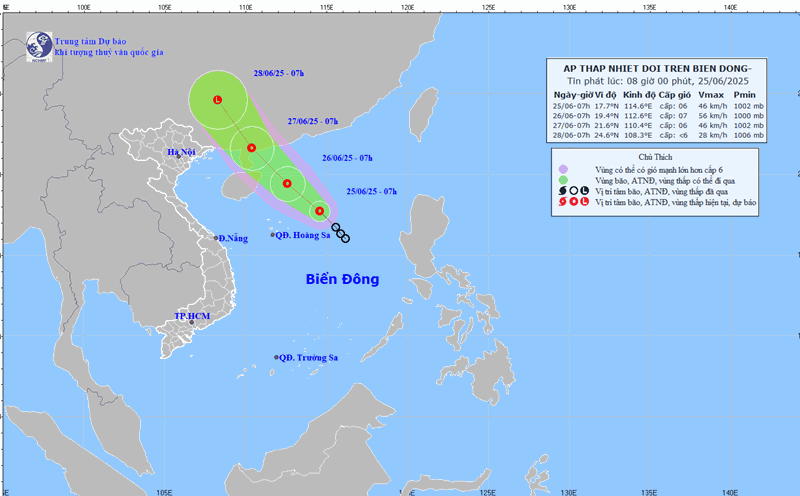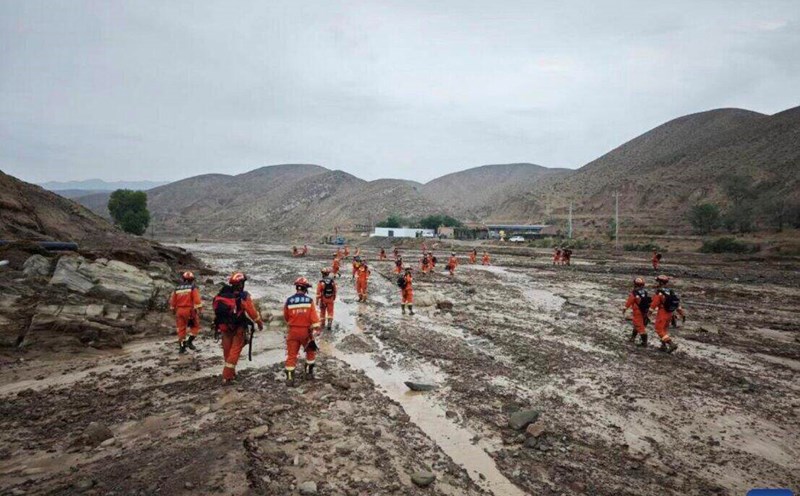vulnerable communities in Guizhou province, which is hit hard by the latest flooding in China, are advised to quickly evacuate to higher ground after many rivers overflowed due to prolonged heavy rain.
Guizhou is located at the southwest of the seasonal rain belt extending from China to Japan.
At least two riverside cities, Tong Giang and Dung Giang, each with more than 300,000 people, have asked people living near rivers with rising water and low-lying areas to urgently evacuate on June 24.
Guizhou province, with mountainous terrain and many other areas in southern China, has recorded heavy rain since last week, as the rainy season in East Asia began to operate strongly, breaking records for rainfall in many places in China.
Summer flooding is not uncommon in China, but many scientists warn that climate change is causing increased and more frequent rainfall.
Severe floods can cause unpredictable "black thunderstorms" (unexpected, rare events that have a significant impact on the world), with serious consequences such as dam failure, officials warn.
According to Chinese media, due to floods, the overpass collapsed on the highway leading to Dung Giang on June 24. The bridge collapsed after rocks and soil slid down the mountainside, breaking the concrete pillars, causing a section of the bridge to fall straight to the foot of the mountain.
A truck carrying goods was lucky to stop in time right before the collapsed section and lying precariously on the edge of the abyss, the driver had to sit and wait for rescue forces, according to a video of the bridge collapse shared on Chinese social media.
In many other places in Guizhou, landslides caused many sections of highways to be congested or seriously sunk.
In cities like Dung Giang, flooded streets have paralyzed traffic, many low-lying areas such as the basement of parking lots and the basement of shopping malls have also been flooded.
The latest weather forecast from China's National Meteorological Administration said that the rain will continue for the next few days. Weather experts warn provinces such as Guizhou, which are recording many extreme weather phenomena at the same time, to be especially vigilant.
Meanwhile, provinces north of the rain belt such as Ha Nam, Son Dong, Ha Bac and the capital Beijing are recording hot weather, with temperatures nearly 40 degrees Celsius on June 24.
In its annual report released on June 23, the United Nations' World Meteorological Organization (WMO) warned that Asia is warming at a rate nearly double the global average, leading to more extreme weather and heavy damage to the region.











